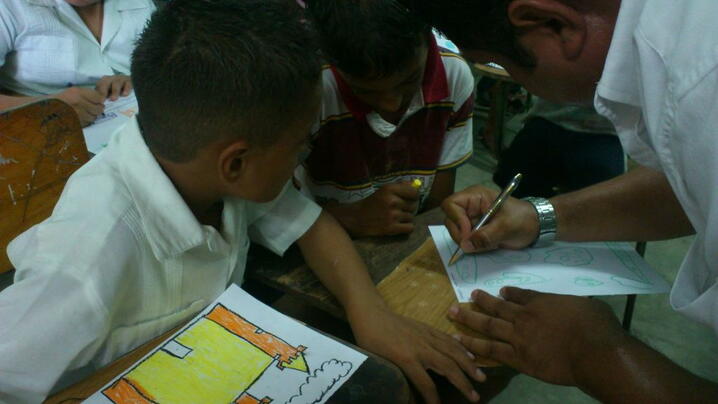
Currently battling high crime and violence rates, Latin America seeks innovative solutions to build safer communities. Nearly 40 representatives from crime and violence prevention committees in Guatemala, El Salvador, and Panama, representatives from municipal associations in Costa Rica, and other interested stakeholders from the region and Mexico tuned in for a special virtual discussion based on the CPTED (Crime Prevention Through Environmental Design) methodology last week, as part of one of the activities of the USAID-funded AMUPREV (Municipal Partnerships for Violence Prevention in Central America) Program. AMUPREV facilitates a number of city-to-city exchanges between Central American municipal officials and police officers in Panama, El Salvador, and Guatemala, and their counterparts in the United States.
Following introductions, Macarena Rau, executive director of PBK Consulting and Vice-President of the International CPTED Association, ICA, explained the concept of CPTED, which focuses on principles of natural vigilance and control as well as access to and maintenance of infrastructure to create a sense of territorial belonging to a community. According to Macarena, neighborhoods that are uncared for can oftentimes serve as breeding grounds for illegal activities. The objectives of CPTED include reducing crime and insecurity, as well as increasing community cohesion. She specifically emphasized the importance of engaging youth in community activities such as painting lively, colorful murals on neighborhood walls. By becoming more involved in these activities, residents tend to gain a sense of ownership of their community, which can deter crime and violence.
After Macarena’s presentation, participants eagerly asked questions about community engagement and how to pair CPTED with community policing. The representatives of the crime and violence prevention committees and the municipal associations were interested in engaging in further discussions to possibly incorporate CPTED into their strategies in the future.
To learn more about ICMA International, visit the website and the International Development topic in the Knowledge Network, or contact international@icma.org.
New, Reduced Membership Dues
A new, reduced dues rate is available for CAOs/ACAOs, along with additional discounts for those in smaller communities, has been implemented. Learn more and be sure to join or renew today!
